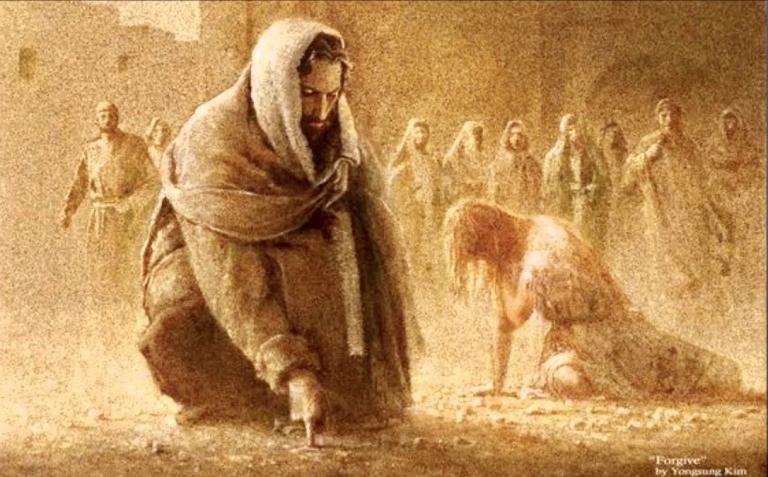
It might come as a shock at first. It’s offensive. But, you’re really not sure why it’s offensive. You might even feel a sense of sadness upon experiencing such an accusation. You may have never really cared what people thought of you, so why this, why now? After a while, you become used to hearing the word, but rarely do you fully get over it. It still bites, just a little bit.
Although being called a “heretic” in today’s day and age will not get you a death sentence as it would have in most of Christian history, it still does contain influence. It still contains power. The word “heretic” has been used to signify that a particular individual has left what is considered orthodoxy among mainstream believers.
In many denominations, the accusation of being a heretic is enough to get a pastor fired and even kicked out of the denomination. And, in many churches, it’s enough for an individual in leadership to lose their position and be kicked out of the church.
I have lost count of how many times this term has been launched in my direction. As a critically-thinking leader in the Church and a writer, I am an easy target. I am lucky to have surrounded myself with others who embrace my “heresy” as a means of provocation toward something that is hopefully life/faith-changing. However, not everyone has this type of support.
There is certainly an art to being a heretic. I don’t make any claim just to be provocative – as some are in the habit of doing. Heresy must coincide with the individual’s true conviction. Nothing is more irritating than to click on a provocative title just to learn that I was a victim of “clickbait”.
Jesus Set the Example
It’s important to note that making a claim against what is considered orthodox does not mean that what you are claiming is inherently wrong. It just means others think you are wrong. Jesus provides us with a great example of what it means to be an effective heretic. Anytime Jesus made a claim or acted outside of what the religious leaders considered to be orthodox (based upon the Law) He would be considered a heretic (healing on the Sabbath, implying He was the Son of God, etc.). However, there is one particular instance of this occurring that I want to highlight.
In John 8: 1-11 (NIV) we read:
At dawn [H]e appeared again in the temple courts, where all the people gathered around him, and he sat down to teach them. The teachers of the law and the Pharisees brought in a woman caught in adultery. They made her stand before the group and said to Jesus, “Teacher, this woman was caught in the act of adultery. In the Law Moses commanded us to stone such women. Now what do you say?” They were using this question as a trap, in order to have a basis for accusing him.
But Jesus bent down and started to write on the ground with his finger. When they kept on questioning him, he straightened up and said to them, “Let any one of you who is without sin be the first to throw a stone at her.” Again he stooped down and wrote on the ground.
At this, those who heard began to go away one at a time, the older ones first, until only Jesus was left, with the woman still standing there. Jesus straightened up and asked her, “Woman, where are they? Has no one condemned you?”
“No one, sir,” she said.
“Then neither do I condemn you,” Jesus declared. “Go now and leave your life of sin.”
The Law that the religious leaders were referring to was from Leviticus 20:10 and Deuteronomy 22:23-24. This woman was the perfect example of why this was written into their law. There was no question as to her guilt. And according to the law, this woman was supposed to be stoned to death (along with her lover, who was conveniently absent from the proceedings). Not only did Jesus dissuade them from stoning her, but He also chose not to stone her Himself.
Why?
Does not justice for the husband and the integrity of the law demand that she receives punishment for her breaking the law? Since Jesus is the only one without sin, is it not His responsibility based upon His own criteria that she is stoned?
Jesus was both a heretic and a lawbreaker. And I love this about Him.
To be clear, Jesus was not promoting anarchy. He was promoting conviction. He was promoting grace. And to be a good heretic like Jesus was, I believe He was also saying that the law was wrong.
“Gasp!”
Although many Protestants would deny this, we oftentimes elevate tradition over truth. We take ideas that have been passed down to us and we rarely question them, because to do so is to risk heresy. In fact, some traditions are handed down to us that never had any foundation in the Early Church. Somewhere along the way some of these ideas morphed and became something new (ex. women not being allowed to lead in ministry).
Although the culture of questioning is slowly beginning to change (thanks to other heretics), we still need to create atmospheres within our church communities that allow for people to question. We should have a heretic(s) in every church who is willing to hold their church accountable. Perhaps if we had more people like this, then leaders within the Church might be more respected. Maybe we would be able to see clearer those issues that are actually important. Maybe, as Jesus demonstrated, heresy would bring about more grace in our communities, and more love for our neighbors.

















